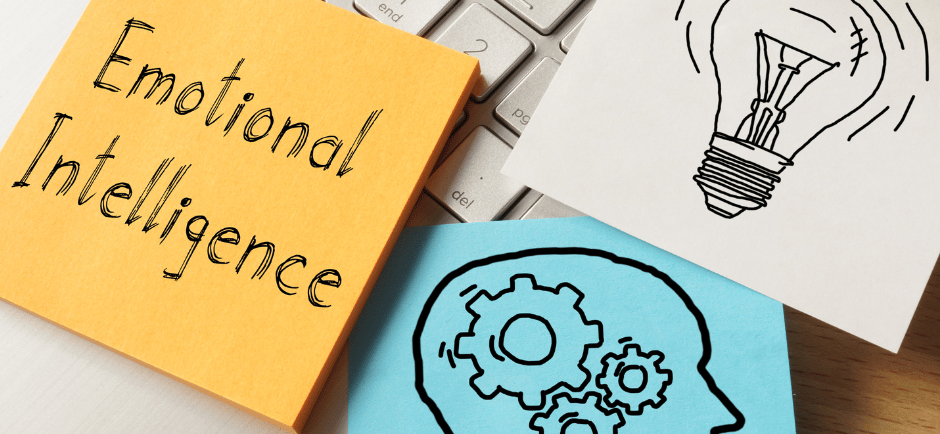The Impact of Pornography Addiction on Emotional Intelligence
Discover the profound effects of pornography addiction on emotional intelligence. Gain insights into how this addiction impacts one's ability to understand and manage emotions, and learn strategies...


The Relationship Between Pornography Addiction and Emotional Intelligence
Pornography addiction is a topic that has gained significant attention in recent years. With the easy accessibility of explicit content online, more and more individuals are falling into the trap of addiction. While the negative effects of pornography addiction on relationships and mental health are well-documented, there is also a growing body of research that suggests a link between pornography consumption and emotional intelligence (EQ).
Understanding Emotional Intelligence
Emotional intelligence refers to the ability to recognize, understand, and manage our own emotions, as well as the emotions of others. It encompasses skills such as self-awareness, self-regulation, empathy, and social skills. Individuals with high EQ are generally better equipped to navigate social interactions, build healthy relationships, and cope with stress.
The Impact of Pornography Consumption on Emotional Intelligence
Research suggests that excessive pornography consumption can have a detrimental effect on emotional intelligence. Here are some ways in which pornography addiction may impact EQ skills:
1. Self-Awareness:
Pornography addiction can lead to a distorted sense of self. Constant exposure to unrealistic and exaggerated sexual scenarios can create unrealistic expectations and ideals about one's own body, performance, and relationships. This can result in a diminished sense of self-worth and self-esteem, making it difficult for individuals to develop a healthy level of self-awareness.
2. Self-Regulation:
One of the key aspects of emotional intelligence is the ability to regulate one's own emotions and impulses. Pornography addiction can disrupt this ability by reinforcing instant gratification and impulsive behavior. The constant exposure to explicit content can lead to a desensitization effect, making it harder for individuals to control their sexual impulses and engage in healthy self-regulation.
3. Empathy:
Empathy, the ability to understand and share the feelings of others, is a crucial component of emotional intelligence. Pornography addiction can hinder the development of empathy by objectifying individuals and reducing them to mere sexual objects. This can lead to a diminished capacity to connect with others on an emotional level and understand their needs and perspectives.
4. Social Skills:
Healthy social interactions require a certain level of emotional intelligence. Pornography addiction can impair social skills by promoting isolation and withdrawal from real-life relationships. Excessive consumption of explicit content can lead to a skewed understanding of intimacy and sexual relationships, making it challenging for individuals to develop and maintain healthy connections with others.
Interventions for Enhancing Emotional Intelligence in Recovery
Recognizing the impact of pornography addiction on emotional intelligence is the first step towards recovery. Here are some interventions that can help individuals enhance their EQ skills:
1. Therapy:
Seeking professional help through therapy can be beneficial in addressing the underlying issues that contribute to pornography addiction and emotional intelligence deficits. Therapists can provide guidance and support to develop healthy coping mechanisms, improve self-awareness, and rebuild relationships.
2. Mindfulness and Self-Reflection:
Practicing mindfulness and self-reflection can help individuals become more aware of their emotions, thoughts, and behaviors. Engaging in activities such as meditation, journaling, and self-assessment exercises can promote self-awareness, self-regulation, and empathy.
3. Developing Healthy Relationships:
Building and nurturing healthy relationships is essential for enhancing emotional intelligence. Engaging in activities that foster connection and empathy, such as volunteering or joining social groups, can help individuals develop and practice social skills in a supportive environment.
4. Education and Skill-Building:
Learning about emotional intelligence and actively working on developing EQ skills can be instrumental in recovery. Reading books, attending workshops, and participating in EQ training programs can provide individuals with the knowledge and tools to enhance their emotional intelligence.
Conclusion
Pornography addiction can have far-reaching consequences, including a negative impact on emotional intelligence. Recognizing the link between pornography consumption and EQ deficits is crucial in addressing the underlying issues and seeking appropriate interventions for recovery. By prioritizing self-awareness, self-regulation, empathy, and social skills, individuals can work towards enhancing their emotional intelligence and building healthier, more fulfilling relationships.


